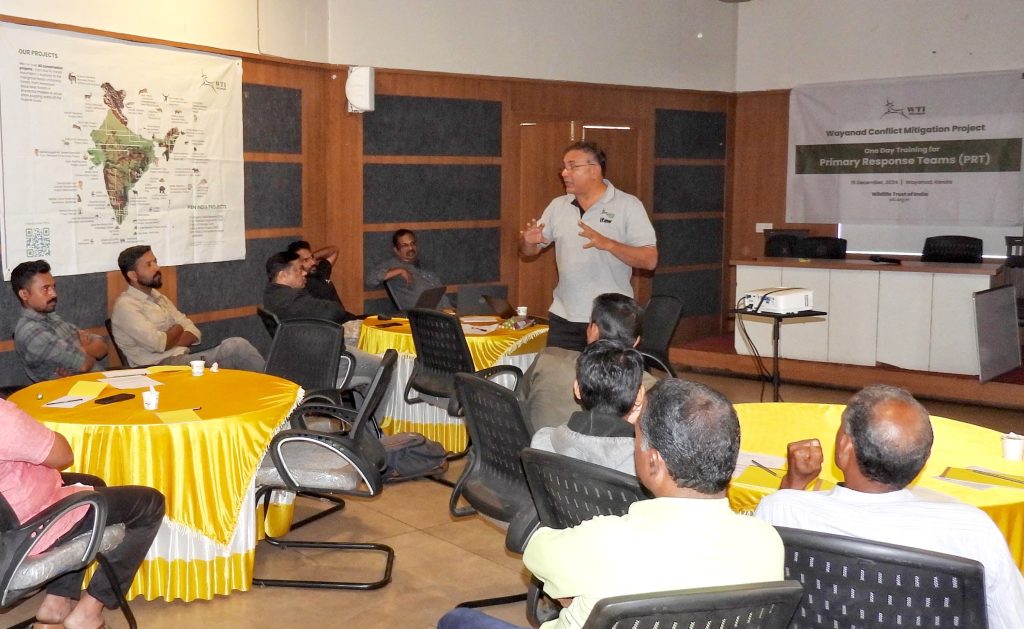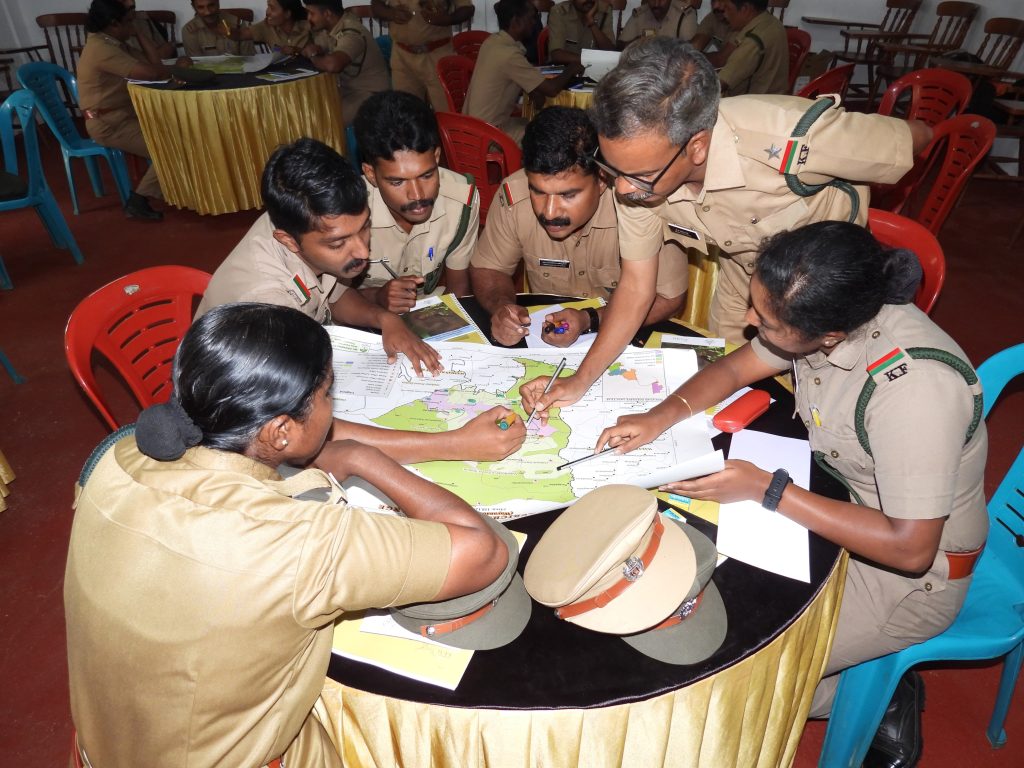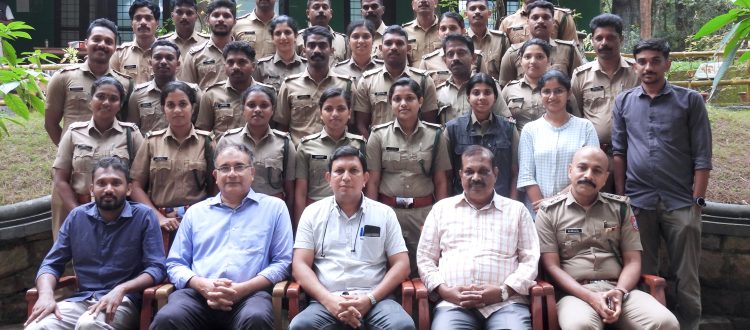Building capacity: Human-wildlife conflict workshops for Wayanad frontline forest staff
Wayanad, Kerala, 19th December 2024: A series of training on basic courses on ‘Human-Wildlife Conflict Management’ is underway for frontline staff of three forest divisions in Wayanad District, Kerala from December 12th to 20th, 2024. Organised by the Wildlife Trust of India (WTI) and Kerala Forest & Wildlife Department, these programs aim to enhance the capacity of forest personnel to effectively manage human-wildlife conflicts, particularly involving elephants and big cats.
The training is being held at various locations across Wayanad, covering: Wayanad Wildlife Sanctuary, North Wayanad Forest Division, and South Wayanad Forest Division.
The inaugural session was graced by chief guest, Mr. Ajith K. Raman, Divisional Forest Officer of the South Wayanad Division. In his address, he highlighted the importance of empowering frontline staff with the necessary skills needed to address human-wildlife conflicts, ensuring the safety of both wildlife and the community.

Dr. N.V.K. Ashraf, Senior Advisor and Chief Veterinary Officer, taking a session during the workshop | Photo by Team WTI
The sessions were delivered by experienced trainers, including Dr. N.V.K. Ashraf, Senior Advisor and Chief Veterinary Officer, WTI, Mr. Simon Francis, Retd. Assistant Conservator of Forests, Kerala Forest Department, and Mr. Ramith M, Manager & Project Head, Wayanad Conflict Mitigation Project, WTI.
Over the three training programs held at three different locations, 75 frontline staff members from ten forest ranges in Wayanad will receive training on essential aspects of human-wildlife conflict and its mitigation strategies, including the levels and types of conflict, causes and drivers, mitigation measures (preventive, reactive, pre-emptive), stakeholder analysis, and principles of wildlife rescue and rehabilitation.

The participants were trained on essential aspects of human-wildlife conflict and its mitigation strategies | Team WTI
Mr. Varun Dalia, IFS, the DCF and Warden of Wayanad Wildlife Sanctuary, served as the chief guest during today’s training session. He emphasised that human-wildlife conflict is one of the most significant challenges in conservation and highlighted the training as a vital step in equipping frontline staff with the skills and knowledge needed to address these conflicts effectively.
Dr. N.V.K. Ashraf observed that human-wildlife conflicts in the state often result in significant tensions between the public and the government. Training programs focused on mitigating these conflicts serve as crucial steps toward fostering a society where such disagreements can be significantly reduced.
Read more about WTI’s Wayand Conflict Mitigation Project









